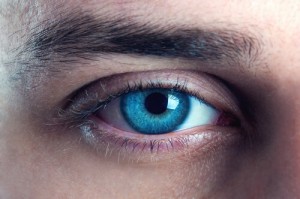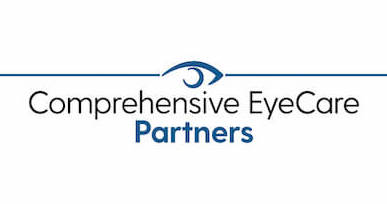
Eye Exam in Las Vegas
To maintain good vision and to keep your eyes healthy, it is important to have routine eye exams. For those with stable vision and without any eye disease having routine eye exams, every two years is important. At this exam your eyes will be dilated so the doctor can see into your retina, your vision will be checked and you will be screened for eye diseases or disorders. If further testing is required a more comprehensive exam and possible testing will be scheduled.
If you experience any changes in your vision between regularly scheduled visits with your eye specialist, you should schedule an appointment as soon as possible. Early detection of problems and treatment of problems can be the key to optimal eyecare that prevents loss of vision.
When you call to make an eye appointment, be prepared to describe any current vision problems. In addition, patients should ask if the eye exam will affect their vision temporarily and if they will need someone to drive them home. They may also want to ask about the cost of the exam if their insurance plan will cover any of the cost, and how payment is handled.
What Should I do Before an Eye Exam?
Before going to your eye exam, gather information to help answer questions the eye care professional may ask:
- Symptoms of current eye problems (flashes of light, difficulty seeing at night, temporary double vision, loss of vision, etc.).
- Eye injuries or eye surgeries (approximate dates, where treated).
- Family history of eye problems (glaucoma, macular degeneration, cataracts, etc.).
- Any questions about their vision, glasses, contacts, laser surgery, etc.
- A list of all prescriptions and over-the-counter drugs currently being used.
- Their general health condition (allergies, chronic health problems, operations, etc.).
What Should I Bring to an Eye Exam?
Patients should also take the following items with them to their eye exam:
- Glasses, contact lenses or both.
- A list of all prescriptions and over-the-counter drugs currently being taken.
- Medical or health insurance card.
When Should I Get an Eye Exam?
Signs that You May Need an Eye Exam:
Children:
- Holding a book too close to their eyes.
- Difficulty reading the blackboard in school.
- Complaints of blurry eyesight.
- Squinting a lot.
- Closing or covering one eye in order to see.
If your child is experiencing any of these symptoms, schedule your appointment today at Shepherd Eye Center.
Adults:
- Arms are suddenly “too short,” i.e., need to hold the newspaper or other reading material far away.
- Unusual difficulty adjusting to dark rooms.
- Difficulty focusing on close or distant objects.
- Unusual sensitivity to light or glare.
- Change in the color of the iris.
- Red-rimmed, encrusted, or swollen lids.
- Recurrent pain in or around the eyes.
- Double vision.
- Dark spot at the center of their vision.
- Lines and straight edges appear wavy or distorted.
- Excess tearing or “watery eyes.”
- Dry eyes with itching or burning.
- Seeing spots or ghost-like images.
If you are experiencing any of the symptoms above schedule an eye exam at Shepherd Eye Center.
The Following Vision Symptoms are Indications of Serious Medical Problems that Require Immediate Attention:
- Sudden loss of vision in one eye.
- Sudden hazy or blurred vision.
- Flashes of light or black spots in the field of vision.
- Halos or rainbows around lights.
- Curtain-like blotting out of vision.
- Loss of peripheral (side) vision.
If you are experiencing any of these symptoms call our office immediately at 702.731.2088
Your Routine Eye Care Exam:
Visual acuity tests measure the smallest object each eye can see at a certain distance. Normally, each eye will be done individually by covering one eye at a time. It may be necessary to tape a patch over a child’s eye to keep him or her from peeking. The use of the Snellen chart is the most common way to test visual acuity. This chart displays numbers that decrease in size. When taking the test, the distance between the patient and the chart is 20 feet.
20/20 vision is normal. If a person has 20/40 vision, they see at twenty feet what a normal eye sees at forty feet. If a person has 20/200 vision, they are legally blind. They only see at twenty feet what a normal eye sees at two hundred feet. If they have 20/15 vision, they see better than normal. They see at twenty feet what the normal eye would have to bring in to fifteen feet to see.
For children that do not know letters and numbers, they can be tested with the Tumbling E chart. To take this test, the child points his/her finger in the same direction as the E is pointing. Children who are younger than four may have trouble with this test, so there are several different tests used to obtain a child’s accurate visual acuity.
Comprehensive Eye Exams:
Comprehensive eye exams for adults include the following:
- Review of family and personal health history.
- Examination of the interior and exterior of the eye for signs of eye disease or general health problems such as diabetes or hardening of the arteries.
- Eye pressure and field of vision tests to diagnose glaucoma.
- Tests of ability to see sharply and clearly at both close and far distances.
- Tests to determine the presence of nearsightedness, farsightedness, astigmatism, depth perception problems, and in people over age 40, presbyopia
- Check eye coordination and eye muscle function to make sure the eyes are working together as a team.
- Test of ability to change focus easily from near to far, and vice versa.
Additional Eye Care tests for young children include:
- Check for indications of crossed eyes
- Check to ensure the child is using both eyes
- Tests to check eye-hand-foot coordination
- Tests to determine how well the child’s vision skills are developing
- Tests to determine a normal color vision
Your visit to Shepherd Eye Center will include a discussion of the exam’s findings and any treatment prescribed. Click here to schedule your appointment today!


